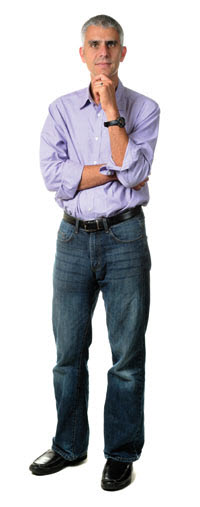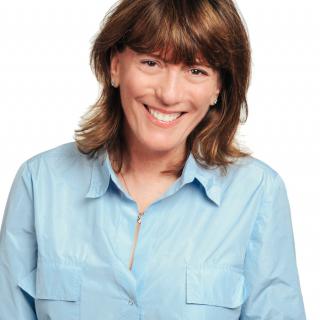We caught up recently with the University of Washington College of Education’s dean and professor of curriculum and instruction, Tom Stritikus, Ph.D. His passion for excellence in education drives the UW’s commitment to cutting-edge research and equity for students. Under Stritikus’ tutelage, the college examines the political, social and cultural contexts that shape traditional classroom settings and virtual education.
 What motivates you as dean at the UW College of Education?
What motivates you as dean at the UW College of Education?
The college is committed to doing the most rigorous research around the most pressing problems facing P–20 [preschool through higher education]. We’ve identified what we think are our key areas challenging the educational context for youth in America today. We use research to expose problem and opportunity points, and then bring the answers to that research out to the field.
In a practical sense, how does society benefit?
As a research university, we have identified areas that shape our research and what our programs look like, enabling us to best train the next generation of professionals to go out and change the world in some way.
How is the UW’s research connected to practice?
Early childhood education is a huge emphasis for us. We partner with Washington State Department of Early Learning, Thrive by Five, local school administrations and many others. This is complicated work, and it takes deep human and organizational capacity to get the kind of change that we want.
Tell us about the UW’s work focusing on teacher training.
Teacher education has been situated largely in the context of the university experience. You train and do your classes there, and then go out and have your practicum at the end of that experience. Our courses are taught in schools; the benefit is that you create a mini lab, like a teaching hospital. Students in our master in teaching (M.I.T.) program spend almost half their time working directly in classrooms. They learn from practice — and at the same time, they are able to change and influence practice.
What can parents do, regardless of the economics, to support their kids’ education?
Count with your kids. Count everything ― chairs, straws, what is in front of you and what is not. While you’re cooking and talking, you’re being creative, and these activities are great opportunities for kids. You want kids reading to parents, no matter what the parents’ language is.
Are there many applicants seeking out degrees to be the next generation of innovative educators?
Imagine the time that students enter our program to become teachers. They’re entering a profession when state support is eroding and there is increased scrutiny of teachers. Yet they truly enter with zeal and passion. We partner with Teach for America in the Puget Sound region to help turn some of the missionary zeal into their ability to be the most effective teachers they can be with outstanding content.
I grew up with two parents who were Chicago public school educators. After 25 years of teaching math to the toughest inner-city population, my mom earned a third less than an entry-level attorney. Will this situation improve?
There is no magic answer. This is about societal commitment. A good childhood teacher can make a huge difference in a kid’s life and in a child’s economic gain. As a system, we’re getting clear about the value that teachers have and we’ve got to figure out ways to reward this team, especially those working in the hardest types of contexts. It’s a policy question. Private-school teachers with a Ph.D. make six figures at some of the prestigious Seattle-area schools.
Where are you seeing the greatest advancement in rewarding teachers?
By 2014, 50 percent of Head Start teachers have to have B.A.s. We know there is a correlation between education and vocabulary and early reading. Head Start creates an axis point, but many teachers are not properly trained. With a national Head Start center situated at the UW, we’ve been developing modules for high-quality courses that could potentially be delivered online to huge numbers across the nation.
In South King County, only two of 10 children persist to a two- to four-year degree, and it’s one in 10 for children of color. Think about the economic cost of that to our greater society when we keep passing the buck. The lost human potential is absolutely tragic.
What are some of the greatest successes coming out of the College of Education?
We have children at the Experimental Education Unit (EEU), a half-day blended preschool program that serves children 3 to 5 years old that includes children with and without disabilities. Imagine being a parent and watching your 5-year-old speak for the first time. It’s inspiring to realize that because of work our faculty is doing, extremely low-income schoolkids are sorting and counting objects using tens and hundreds, or doing multiplication in their heads.
How are our high school graduation rates? How is your work affecting progress?
Dropout rates and achievement rates, particularly for students from low-income backgrounds and students of color, are abysmal. We’ve got to do something to disrupt that, and you can’t just mandate everyone take an AP course.
Bellevue High School is actually a great partner of this knowledge. We partner in the question around the supports we put around kids and teachers. What do teachers need to know and learn in order to do this work in really interesting ways? The explosion on the education technology side, as well as the curriculum side, allows reinvention of what traditional courses look like.




 We caught up recently with the University of Washington College of Education’s dean and professor of curriculum and instruction, Tom Stritikus, Ph.D. His passion for excellence in education drives the UW’s commitment to cutting-edge research and equity for students. Under Stritikus’ tutelage, the college examines the political, social and cultural contexts that shape traditional classroom settings and virtual education.
We caught up recently with the University of Washington College of Education’s dean and professor of curriculum and instruction, Tom Stritikus, Ph.D. His passion for excellence in education drives the UW’s commitment to cutting-edge research and equity for students. Under Stritikus’ tutelage, the college examines the political, social and cultural contexts that shape traditional classroom settings and virtual education.






